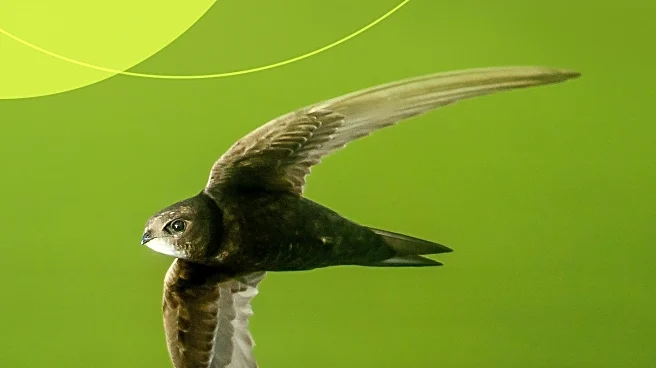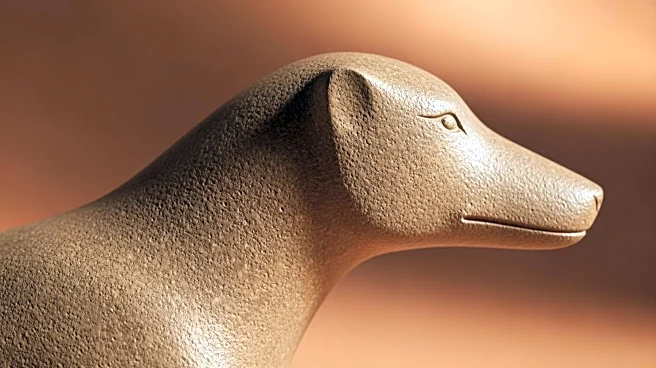What's Happening?
The Merlin Bird ID app, developed by the Cornell Lab of Ornithology, is gaining popularity as a mindfulness tool, offering an alternative to traditional meditation apps. Launched in 2014, the app helps users identify birds by recording sounds, answering questions, or uploading photos. It utilizes eBird, the world's largest database of bird sounds and photos, to provide users with information about birds in their area, even offline. Users can track bird sightings and explore local avian species, enhancing their connection to nature. The app's features, such as real-time spectrograms and location-based reports, encourage users to spend time outdoors, listening to and identifying birds, which can lead to increased mindfulness and presence.
Why It's Important?
The Merlin Bird ID app represents a shift in how individuals approach mindfulness and mental well-being. By focusing on bird identification, users engage with their environment, fostering a deeper connection to nature. This practice can reduce stress and improve mental health, offering a unique way to stay present and grounded. As people seek alternatives to traditional meditation methods, the app provides an engaging and educational experience that promotes mindfulness through interaction with the natural world. This trend highlights the growing interest in nature-based mindfulness practices, which can have positive implications for mental health and well-being.
Beyond the Headlines
The use of the Merlin Bird ID app for mindfulness reflects broader cultural shifts towards nature-based wellness practices. As individuals increasingly seek ways to disconnect from technology and reconnect with the natural world, apps like Merlin Bird ID offer a bridge between digital tools and environmental engagement. This trend may lead to increased interest in conservation efforts and a greater appreciation for biodiversity, as users become more aware of the avian species in their surroundings. The app's success also underscores the potential for technology to facilitate meaningful interactions with nature, promoting both mental health and environmental awareness.










